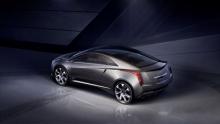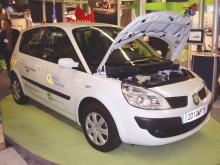A wide array of measures is being used around the world to encourage customers to buy electric vehicles. Customers are still proving reluctant in many markets to buy electric vehicles, with range concerns and purchase costs amongst the key. Nissan reports that sales of its sophisticated Leaf model (developed jointly with its partner Renault) have been sluggish in Europe, despite glowing reviews in various motoring magazines. In the UK one leading thinktank, the Institute for Public Policy Research (IPPR), h
A wide array of measures is being used around the world to encourage customers to buy electric vehicles. Customers are still proving reluctant in many markets to buy electric vehicles, with range concerns and purchase costs amongst the key. 2454 Nissan reports that sales of its sophisticated Leaf model (developed jointly with its partner 2453 Renault) have been sluggish in Europe, despite glowing reviews in various motoring magazines.
In the UK one leading thinktank, the Institute for Public Policy Research (IPPR), has suggested introducing free-parking for electric vehicles in a bid to increase demand for electric vehicles. Owners of electric vehicles would also be allowed to park them in areas where other vehicles are not allowed to park under the IPPR’s suggested policy. In the UK, as elsewhere, electric vehicles are still seen in small numbers only. Sales in the UK did increase in 2012 compared with the previous year and were helped by a purchase subsidy worth close to €6,000. But with total sales of 2,000 electric vehicles in the UK in 2012, there is clearly still room for growth as this number is significantly smaller than the 1.9 million vehicles with internal combustion engines sold in the country over the same period. The IPPR’s suggestion has met with criticism however. The suggestion that electric vehicles would be allowed to park in areas where other vehicles are not allowed to park has attracted particular criticism, saying th
at this would affect traffic flow.
In Norway a trial has been started that allows electric vehicles to be driven in bus lanes. But there are concerns from some areas that this may increase risks for vulnerable road users such as cyclists and pedestrians. A report from Japan did highlight the risks posed by low noise hybrid vehicles operating under electric power in the urban cycle to pedestrians and cyclsits.
In China the recent heavy smog in major cities such as capital Beijing has redoubled the moves by the authorities with regard to electric vehicles. Favourable purchase terms are offered in several provinces in China for electric vehicle buyers, with discounts and subsidies available. The massive increase in vehicle ownership in China has resulted in severe smog problems and with a huge impact on health. Electric vehicles are seen as a key component in tackling this issue. Chinese vehicle manufacturers are also amongst the global leaders in developing new and more efficient electric vehicles too, with the country’s government having encouraged firms to carry out extensive research and development programmes through offering subsidy packages.
In the UK one leading thinktank, the Institute for Public Policy Research (IPPR), has suggested introducing free-parking for electric vehicles in a bid to increase demand for electric vehicles. Owners of electric vehicles would also be allowed to park them in areas where other vehicles are not allowed to park under the IPPR’s suggested policy. In the UK, as elsewhere, electric vehicles are still seen in small numbers only. Sales in the UK did increase in 2012 compared with the previous year and were helped by a purchase subsidy worth close to €6,000. But with total sales of 2,000 electric vehicles in the UK in 2012, there is clearly still room for growth as this number is significantly smaller than the 1.9 million vehicles with internal combustion engines sold in the country over the same period. The IPPR’s suggestion has met with criticism however. The suggestion that electric vehicles would be allowed to park in areas where other vehicles are not allowed to park has attracted particular criticism, saying th
at this would affect traffic flow.
In Norway a trial has been started that allows electric vehicles to be driven in bus lanes. But there are concerns from some areas that this may increase risks for vulnerable road users such as cyclists and pedestrians. A report from Japan did highlight the risks posed by low noise hybrid vehicles operating under electric power in the urban cycle to pedestrians and cyclsits.
In China the recent heavy smog in major cities such as capital Beijing has redoubled the moves by the authorities with regard to electric vehicles. Favourable purchase terms are offered in several provinces in China for electric vehicle buyers, with discounts and subsidies available. The massive increase in vehicle ownership in China has resulted in severe smog problems and with a huge impact on health. Electric vehicles are seen as a key component in tackling this issue. Chinese vehicle manufacturers are also amongst the global leaders in developing new and more efficient electric vehicles too, with the country’s government having encouraged firms to carry out extensive research and development programmes through offering subsidy packages.







